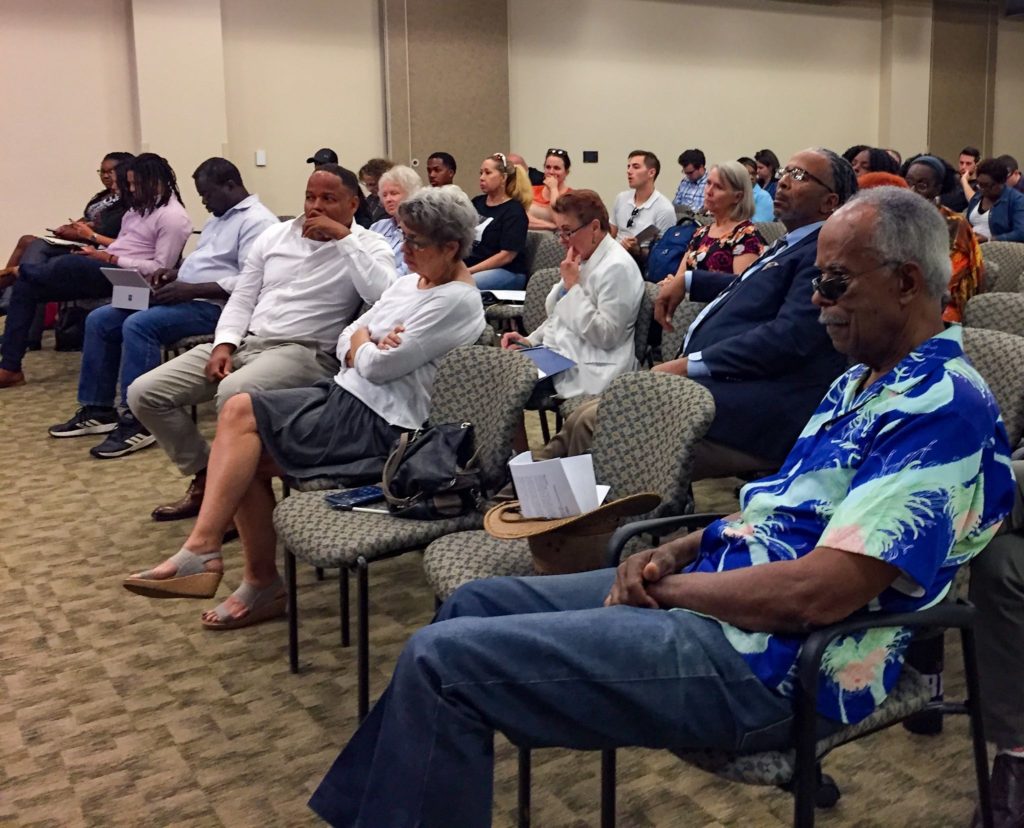
More than three months of heated back and forth have finally come to an end. Representatives from the Metro Nashville Police Department and its new civilian oversight board announced Thursday afternoon that they’ve reached an agreement.
A first look at the latest draft of a memorandum of understanding between the two groups reveals both sides seem to have made some concessions.
The eight-page document the mayor’s office released Thursday includes many of the Community Oversight Board’s original asks.
Board members will have access to a host of department records. They’ll also be notified whenever someone is seriously injured or killed in police custody and will be allowed to visit crime scenes.
Board Chair Ashlee Davis told WPLN News in an interview that the proposal “keeps in mind the ideals, the processes and protocols of Metro Police,” while also delivering on community expectations of the COB.
“I really couldn’t ask for more. That’s exactly what we wanted,” Davis said. “The COB is not asking for extraordinary privileges or purpose, but rather just the due process of having the space to do what’s necessary and what the public has tasked us with. … I’m really excited about that, and I hope the public would be, as well.”
Law enforcement got some wins, too. Unlike in the COB’s original proposal, there are few specific deadlines mandating when police have to respond to board requests. Nor does the document require police officers to cooperate with the group’s investigations into allegations of misconduct — though it does encourage their participation.
Metro Police Chief Steve Anderson commended the proposed agreement in a statement.
“The draft Memorandum of Understanding appropriately builds upon the police department policy made effective last August that called for cooperative interaction with the COB,” he wrote. “I believe this MOU establishes a good framework through which the police department and COB can cooperatively work.”
The formal agreement is meant to help the two groups steer clear of any major disputes in the future, after months of tension nearly brought negotiations to a halt this past fall. When negotiations stalled, the mayor’s office stepped in.
In late November, Mayor John Cooper convened a task force to talk through the details. COB member Phyllis Hildreth, Metro Police Deputy Chief Mike Hagar, Metro Law Director Bob Cooper and John Buntin of the mayor’s office met seven times over the past two months to work out a deal. The group approved a final draft on December 30.
In statement, Mayor Cooper said he supported “both the letter and the spirit of this agreement.”
“By reaching this final draft MOU, we’ve demonstrated what can be achieved when we come together to consider the priorities of all Nashvillians — from vulnerable citizens to passionate advocates for change to those who diligently and honorably serve as our public safety professionals,” Cooper said. “This MOU represents another important milestone in our city’s enduring pursuit for a higher standard of accountability in government.”
Leaders from the Community Oversight Board and Metro Police Chief Steve Anderson still have to sign off on a final draft. But Davis says she’s feeling optimistic.
“It really is something to not just be proud of here in Nashville, but to pick up and show in other spaces and other regions and across the country, quite frankly, that you can have your Community Oversight Board and your Metro Police office come together,” she says. “It’s not a unicorn of sorts. It really can happen when people come together.”
Samantha Max is a Report for America corps member.

